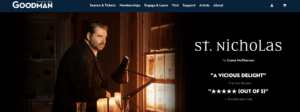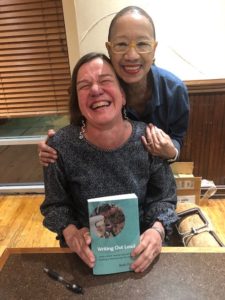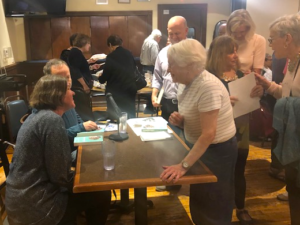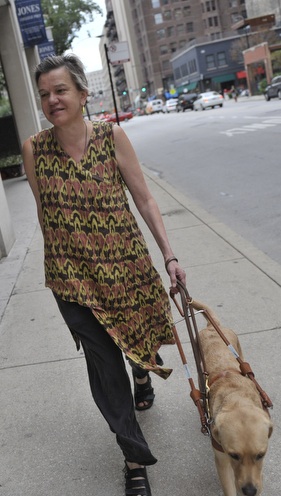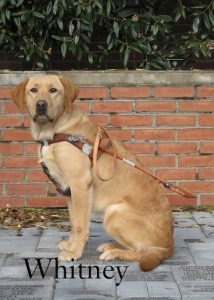Mondays with Mike: Not at all like pulling teeth
September 23, 2019 • 5 Comments • Posted in Mike Knezovich, Mondays with MikeEvery weekend, a Chicago FM station called WXRT does the Saturday Morning Flashback. All morning, the DJ plays noteworthy music from a given year. A couple weeks ago the year was 1973, and among the songs played was Frank Zappa’s “Montana.” You know, the one where he’s going to be a dental floss farmer. What fun to remember the sort of beautiful derangement of that song.
And, off course, I couldn’t get it out of my head for days. And so, Frank Zappa’s voice was playing between my ears last Friday when I walked into my dentist’s office for a regular checkup and cleaning.
An aside:
When Beth and I moved to Chicago from Champaign-Urbana back in 2003, we had to do all that stuff one has to do when moving—like finding a place to get your hair cut, a new primary care doctor, and—a new dentist.
Over the years, I’ve found that finding these kinds of people in a new place is really one of the more daunting parts of relocating. You don’t realize it, but over time, you build up trust with these folks—whether it’s a barber or cardiologist. You build a relationship, intentional or not.
Back to the dentist: I kind of just avoided the search until an emergency struck. A crown broke and I picked a conveniently located dentist that ended up being a Little Shop of Horrors kind of experience. Really bad oldies rock blaring while it felt like the dentist was standing on my jaw.
Having survived that, I started asking around. My boss at the time enthusiastically wrote down the name and number of her dentist.
So, I made an appointment.
Well, it turns out, this dentist is the official dentist of…the Chicago Blackhawks. Docs attend games and are always at the ready. A dentist that can handle professional hockey players is good enough for me!
Anyway, I’ve been a happy patient since (as has Beth). It’s kind of a hi-zoot office space but the staff are all down to earth. Early on the dentist asked me if I’m happy with the way my teeth looked. I said yes. Even though his office does all kinds of cosmetic stuff, that was it—no hard sell.
The place always has cool new technology—like a 3D milling machine that I once watched make a crown right before my eyes.
Over time I got to know my hygienist pretty well, and we did that awkward thing where we’d sort of talk between the work.
Last year she retired, and I went to my first appointment with a new hygienist. Well, you know, I just don’t like change. Especially with people I allow into my mouth. So I was a little nervous.
I needn’t of worried. The ebullient young woman seemed to really love her job, and the cleaning was over before I knew it. Along the way she asked about my last name. “It’s Serbian, I said.”
“Oh, she said, my parents are Croatian!” In fact, she’d just gotten back from a visit to relatives there.
On my way out, she told me to buy a Water Pik.
Last Friday, first thing she asked when I came in was, “Did you get the Water Pik.” I shook my head. “You should. They’re great!”
And we were off. I learned she’s kind of an old soul. Though she’s probably in her twenties she talked about how smart phones are separating people. “When I get on an elevator, I like to talk to people!” she said. “Hard to do when they’re looking at their phones!”
I told her about my trip to Alaska, we agreed that getting out into nature is good for the soul.
“Remind me about your name,” she said. “Oh, never mind, I forgot, we’re neighbors!” That was the first and likely last time I heard anyone talking about Serbia and Croatia primarily as neighbors.
When it was time for the dentist to come in for an exam, the hygienist told me my regular doc was in the middle of a big procedure—would it be OK for another dentist in the office to do the exam?
Another woman walked in, we shook hands in introduction, and then she and the hygienist started looking at the new set of X-rays that had just been taken.
“Oh, wow,” said the dentist.
“I know, right?” said the hygienist.
“Um, may I ask what you’re looking at?” said I, the patient.
They lowered the big computer monitor so I could see it. “That’s one of the best root canals we’ve ever seen,” said the dentist. “They must have gone in above the gum line.”
Who knew? A little off balance, it took me awhile to remember that procedure.
“Nice,” said the dentist. “If you weren’t married, you could use it as a pickup line! Hey, have you seen my root canal at number 3?”
We all laughed.
During the exam, the doctor said everything looked great. “I really like the gum margins.”
Well now. Another compliment I would’ve never expected.
Then, as I got up to leave, the dentist asked, “Have you thought about a Water Pik? They’re really great!”
